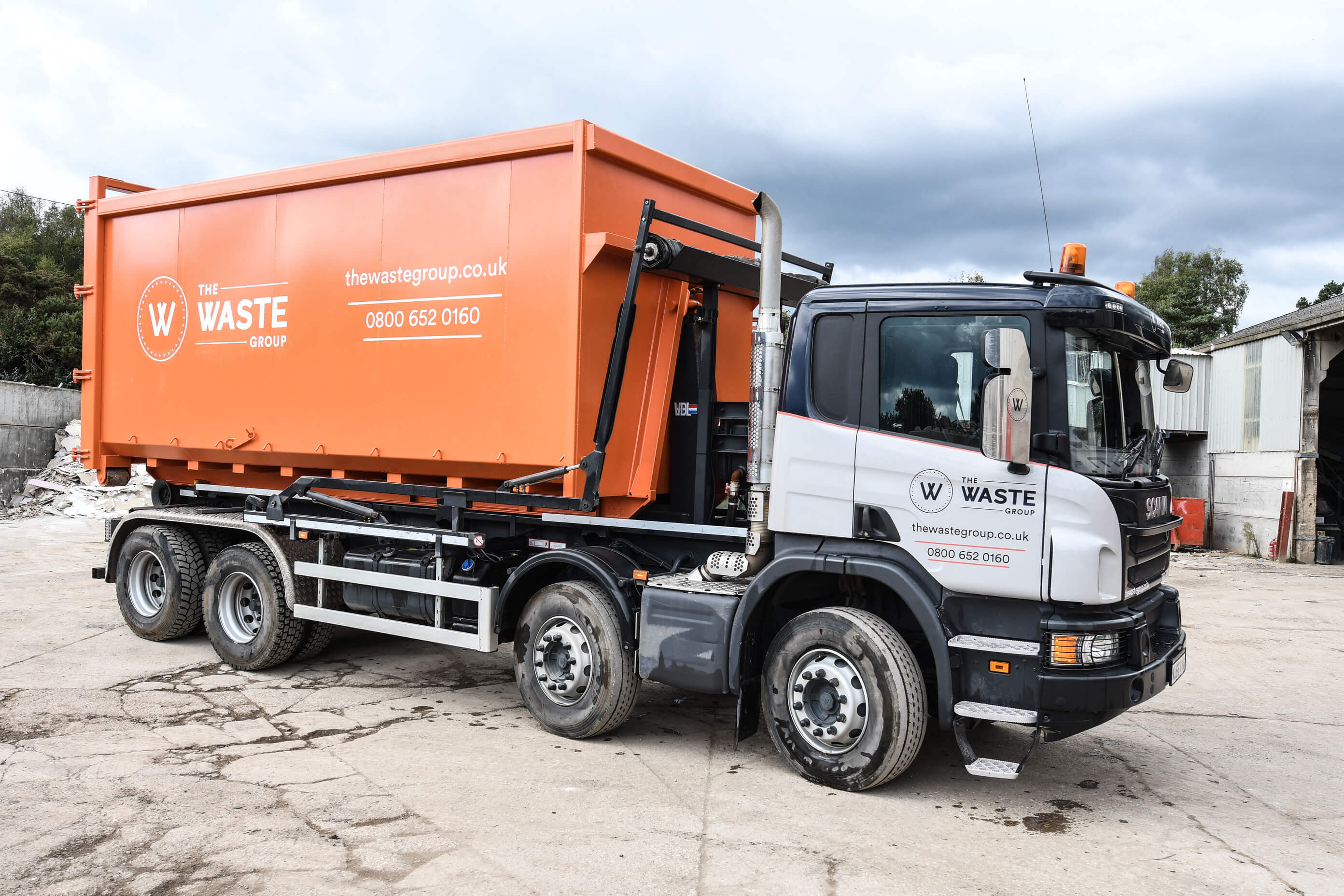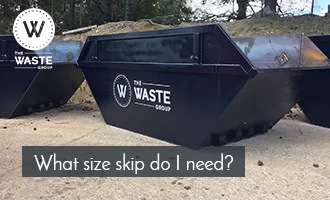Skip Hire Guide: Do Skips Have a Weight Limit?

When you’re cleaning out your home, renovating, or starting a construction project, renting a skip in the UK is an easy way to get rid of waste.
A skip can be brought to your location for you to fill up with your waste materials. Afterward, the skip provider will come back to pick it up within an agreed-upon timeframe. It’s as simple as that!
People appreciate having a solution for getting rid of large amounts of waste without needing to make multiple trips to the landfill. It’s cost-effective, convenient, and responsible – so, it’s no surprise we’re seeing an increase in the demand for skip hire services for both commercial and residential projects.
Skips offer unique benefits on worksites, helping projects stay safe, organised, and efficient. Most skip providers will recycle materials whenever possible, and as environmental concerns continue to rise, many individuals and businesses are opting for skips as an environmentally-friendly waste management strategy.
Despite the benefits, hiring a skip can be daunting for first-timers. This guide is here to boost your confidence when hiring a skip. We’ll focus on important factors like weight limits and how you can avoid overloading your skip.
Do skips have a weight limit?
Yes, skips in the UK typically have a weight limit. But it’s not a one-size-fits-all arrangement. The maximum weight allowed for skips can differ significantly based on factors like the size and design of the skip, along with any local regulations in place.
These weight limits are put in place to ensure the safe transportation and disposal of waste materials. When skips are overloaded beyond their weight capacity, it can lead to serious risks on the road and at the recycling centre.
The impact of skip weight on transportation and the importance of legal compliance
Placing too much weight in your skip can cause disposal delays and lead to extra charges for waste collection. Overloaded skips are more complicated and time-consuming to transport, taking extra trips to the waste site or specialist equipment to handle the move.
Plus, most local regulations enforce skip weight limits to protect roads, infrastructure, and waste management crews from damage or danger. Adhereing to these weight restrictions protects you from fines and promotes public safety.
How much weight can a skip hold?
Each skip size has its own weight limit, which can vary depending on the skip hire company. Here’s a general idea of skip size versus weight limit.
6-yard
Weight limit: 2-3 tonnes
Also known as a ‘mini skip’, a 6-yard skip is perfect for medium-sized house clearance projects and smaller construction jobs. It’s compact enough to fit in tight spaces while offering plenty of space for your waste needs.
8-yard
Weight limit: 3-4 tons
The 8-yard skip is the most common skip size in the UK. With its spacious capacity, it’s a popular choice with builders and ideal for larger home projects.
10-yard
Weight limit: 4-5 tonnes
The 10-yard skip is a top pick for big projects like commercial waste removal, large renovations, and construction jobs.
14-yard
Weight limit: 5-6 tonnes
Designed specifically for disposing of business or industrial waste, the 14-yard skip is for larger projects with bulky waste like shop fittings, office clearances, and big construction projects.
16-yard
Weight limit: 6-8 tonnes
The 16-yard skip is generally hired for significant waste management needs like commercial clearances or industrial projects.
The importance of selecting the right skip size for your needs
Selecting the correct skip size for your waste removal needs is essential for efficient waste management. For example, heavy materials like bricks and concrete require a larger skip, while lighter waste like old clothes and kids’ toys can fit into smaller ones.
It’s important to remember that skip prices differ substantially based on size. If you choose a skip that’s too large for your waste needs, you’ll pay for space you don’t need.
On the other hand, if it’s too small, you’ll have to pay for a second skip or take multiple trips to the landfill, slowing down your project. Overloading a skip and exceeding the weight limit can also incur additional charges or fines.
And by choosing a skip that matches your waste volume, you’re contributing to sustainable waste management practices, which are vital for our planet’s and future generations’ health.
Tips to avoid overloading a skip
When filling up your skip, you’ll need to be mindful of the weight limits and capacity of your chosen size. Here are some tips to avoid adding too much weight to your skip:
1. Plan ahead
Before selecting a skip, think about the amount and type of waste you need to get rid of. This way, you can choose a skip that is just the right size for your needs, avoiding excess weight and saving you time and money in the long run.
2. Layering
When loading your skip, start by placing large and heavy items at the bottom to distribute the weight evenly. Then, add lighter items on top to maximise space usage and avoid exceeding weight limits.
3. Break down bulky Items
Disassemble large items like furniture or appliances to create more room in the skip. This will not only help you accommodate all your waste but also optimise the skip’s capacity.
4. Spread weight evenly
Spread the weight evenly in the skip to keep it balanced and steady. Avoid loading heavy objects on just one side of the skip, as it can create an imbalance and raise the risk of tipping during transport.
5. Compact waste
While filling the skip, use tools like rakes or shovels to pack the waste tightly and minimise empty spaces. Be careful not to compress it excessively, as this could lead to an overly-heavy load.
6. Avoid protruding items
Keep your waste below the fill line marked on your skip, and make sure that no rubbish is hanging over the top or sides. Items jutting out can be dangerous during transport and might lead to penalties.
7. Stick to the weight limit
Get familiar with the weight limit for your selected skip size to avoid going over it. Overloading skips are a safety risk to waste management crews, and can cause transport problems, damage to vehicles, additional fees, and could even result in fines.
8. Talk to your skip suppliers
If you’re uncertain about which skip size or weight limit suits your waste disposal needs, talk to the skip hire company. They can offer guidance and recommend a suitable skip for your project.
Best practices for using a skip
- Sort and dispose of hazardous materials properly: Dispose of dangerous materials like asbestos, chemicals, paint, and electronic waste in specialised skips or through authorised disposal methods. Separate different types of waste to ensure proper disposal and recycling, and do not mix hazardous waste with general waste.
- Maximise recycling: Recycle materials like metal, plastic, glass, and paper to minimise environmental impact and conserve resources.
- Keep skip area clear: Ensure that the area around the skip is clear of obstacles to facilitate safe loading and unloading. Avoid blocking access to roads, driveways, or walkways.
- Monitor skip use: Regularly monitor the fill level of the skip and schedule timely collections to prevent overflow and ensure continuous waste disposal.
- Follow regulations: Adhere to local regulations and guidelines for waste disposal to avoid fines or penalties. Consult with the skip hire company or local authorities if you’re unsure about legal requirements.
Closing thoughts
Hiring a skip is a smart way to get rid of waste, whether you’re tackling a home clear-out, renovation, or a large-scale construction project. With an easy delivery, fill-up, and collection process, skip hire offers the convenience of disposing of waste without making numerous trips to the landfill.
But it’s crucial to know and adhere to weight limits and regulations associated with skip hire to avoid additional charges or penalties associated with an overloaded skip.
By selecting the right skip size, adhering to weight limits, and following best practices for loading your waste, you can optimise waste management processes, minimise costs, and promote environmental sustainability.
Choose the Waste Group for your waste removal needs
Ready to tackle your waste removal needs with ease and efficiency? Look no further than The Waste Group, your local skip hire experts serving Poole, Bournemouth, Dorchester, Weymouth, and Dorset.
With over a decade of experience in the industry, we’re equipped to handle any project, whether it’s a garden clearance or a whole home renovation. Our fleet of new skip lorries promises prompt delivery every time.
Choose from our range of skip sizes, 4 to 12 yards, and roll-on roll-off bins ranging from 16 to 40 yards.
The Waste Group prioritises customer satisfaction, valuing every customer and ensuring they receive excellent service. Recognising that ordering a skip for the first time can be daunting, they strive to simplify the process.
Get in touch with us today to streamline your waste management process!


